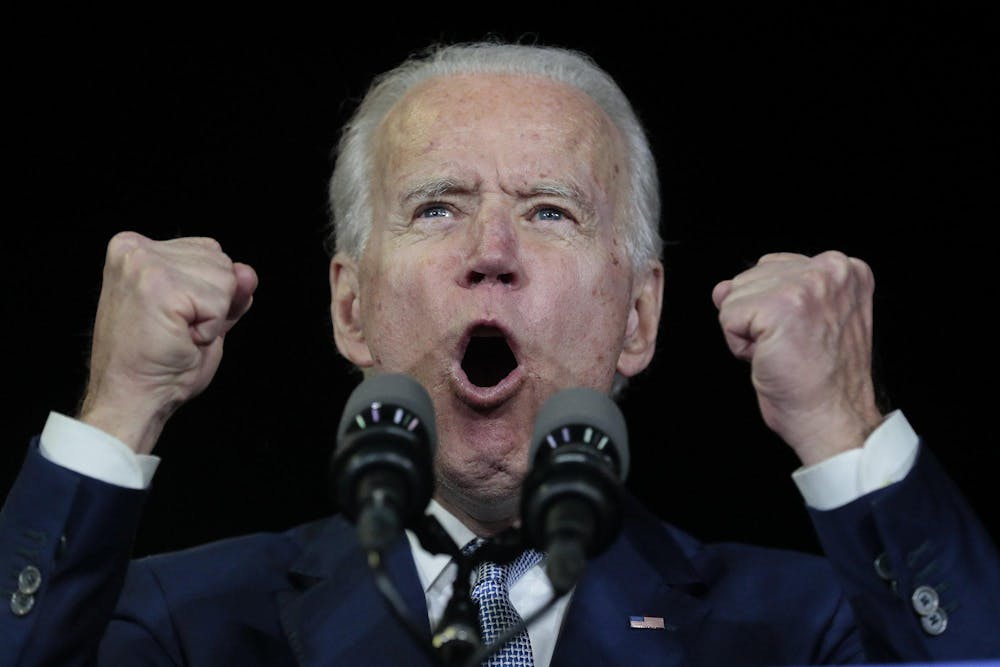Axios reported Monday on former Vice President Joe Biden’s short list for cabinet pick as the likelihood of a Biden nomination has increased after three weeks of major electoral victories.
For those of us concerned about the integrity of our government and its ability to take on corporate power, the list is a bleak glimpse into a potential future. We have seen what happens when bankers have outsized influence in the White House.
When Obama came into office, he adopted an array of Wall Street veterans and insiders into his administration. As a result, his two terms were extremely friendly to the banks, even after their criminal behavior led to the 2008 financial crisis. Obama himself once bragged that he was the only thing standing between the banks and the pitchforks. The former president has since used this goodwill to earn millions by giving speeches to major Wall Street firms.
Biden appears to be doing things the same way. Biden has made his career with money from the credit card industry and paid it back by making it hard for Americans to get out of debt. In 2020, despite promises to reject corporate money, Biden’s bid has been financed by bankers and health care executives.
For Secretary of the Treasury, Biden is looking at JPMorgan Chase CEO, Jamie Dimon. Dimon has presided over the financial titan through the financial crisis of 2008, a history of regular criminal behavior and continued investment of hundreds of millions into dangerous fossil fuels. Dimon, who considered his own bid for the presidency in 2020, made it on to Bernie Sanders’ anti-endorsement list for his fearmongering about the progressive left.
Another potential pick for the Treasury is Bank of America executive Anne Finucane. A former marketing executive, Finucane is best known for rehabilitating the banks' image after the 2008 crisis saw BoA lie about billions of dollars in bonuses.
Axios also reported that the Biden team is considering picking Sen. Elizabeth Warren, D-Mass., for Secretary of the Treasury, as sort of a token progressive to unite the party. Even if a President Biden would follow through with that pick, Warren would likely face staunch opposition from within the administration, dulling her anti-Wall Street agenda.
Biden is reportedly looking at American oligarch and former presidential hopeful Mike Bloomberg to head the World Bank. The World Bank is an international financial institution whose ostensible purpose is to finance development in developing nations, but in practice serves to extract wealth from those nations.
Bloomberg, who spent nearly half a billion dollars on his campaign only to pull out March 4, has a long history of using his wealth to buy influence. Giving him one of the most powerful positions in the global economy would be nothing less than a slap in the face to anyone concerned with the power of the wealthy in government.
Biden is also looking to give positions to Pete Buttigieg, the former South Bend mayor, who ran his 2020 bid first by pretending to be a progressive, then focusing on Wall Street and Silicon Valley. Biden is also looking at Morgan Stanley executive Tom Nides for a high level position.
Other than Warren, the other potential cabinet members illustrate a future White House that continues to be driven by the interests of the major banks and investment firms. The very interests the government is charged with regulating retain an enormous influence in the halls of power, a phenomenon known as regulatory capture.
These firms thrive on their close relationships with governments. Better relationships mean better policy. Under Obama, rather than being prosecuted for their criminal behavior, the banks became more profitable, consolidated and massive than ever before.
Trump, who promised to drain the swamp of these special interests, ended up continuing the tradition. He filled his administration with Goldman Sachs alumni, such as Gary Cohn and Steve Manuchin. The Trump administration has since been dismantling significant parts of the financial regulatory framework through deregulation.
Though a Biden presidency would surely be a major improvement over the current administration, it would fall far short in reigning in titanic Wall Street firms. The bankers will still dominate the policymaking process, and the average American's voice will continue to be shut out. This “Return to Normal” plan proves that Joe Biden was not lying when he told his wealthy donors that “nothing will fundamentally change.”
Bryce Greene (he/him) is a senior studying informatics and is the president of the Palestinian Solidarity Committee at IU. First and foremost, he is a citizen of the world.






